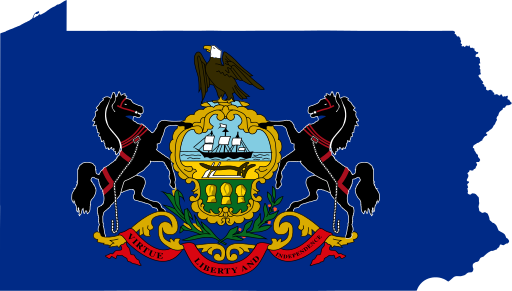Voters in Pennsylvania will decide at least three constitutional amendments on May 18, 2021, including two ballot measures to alter the governor’s emergency powers. One ballot measure would limit an emergency declaration by the governor to 21 days unless the legislature passes a resolution to extend the order. Another proposal would allow the legislature to pass a resolution—without the governor’s signature—to extend or terminate an emergency declaration by the governor.
The constitutional amendments were proposed by legislative Republicans in response to Gov. Tom Wolf’s (D) emergency orders related to the coronavirus pandemic. On March 6, 2020, Gov. Wolf signed an emergency disaster declaration following presumptive positive cases of COVID-19 in Pennsylvania.
In June 2020, the Pennsylvania General Assembly passed a concurrent resolution to terminate the governor’s coronavirus emergency declaration. Mike Straub, a spokesperson for House Republicans, said that the resolution did not need the governor’s signature. “This will not go to Wolf. The declaration is over, and it will be published in the Pennsylvania bulletin,” said Straub. Lyndsay Kensinger, a spokesperson for Gov. Wolf, said, “The disaster proclamation has not been terminated by the House or Senate’s actions. Only the governor can terminate the disaster emergency.”
On July 1, 2020, the Pennsylvania Supreme Court ruled that the governor could veto the concurrent resolution. According to the Pennsylvania Supreme Court, the state constitution requires all concurrent resolutions to be presented to the governor for approval or veto except for resolutions on legislative adjournment, internal affairs of the legislature, and constitutional amendment ballot measures. On July 14, Gov. Wolf vetoed the resolution. The state House voted on the governor’s veto on Sept. 2, 2020, but the vote fell short of the two-thirds requirement to overturn a veto.
State Rep. Russ Diamond (R-102) proposed the constitutional changes. He said, “If the General Assembly — a co-equal branch of government — does not believe that the governor is acting properly, then the General Assembly should have a right to override that governor’s disaster emergency order.”
Gov. Wolf responded, “[The amendment] would hinder our ability to respond quickly, comprehensively and effectively to a disaster emergency by requiring any declaration to be affirmed by concurrent resolution of the legislature every three weeks. This would force partisan politics into the commonwealth’s disaster response efforts and could slow down or halt emergency response when aid is most needed.”
The third constitutional amendment certified for the May 18 ballot would add language to the state constitution that prohibits the denial or abridgment of rights on account of an individual’s race or ethnicity. It was included in the same bill as the two constitutional amendments addressing the governor’s emergency powers. It wasn’t originally part of the bill. Sen. Vincent Hughes (D-7) proposed adding the amendment to the bill, and the full Senate voted unanimously to include it.
Between 1995 and 2020, the state legislature referred 10 constitutional amendments to the ballot. All 10 of the constitutional amendments were approved. Pennsylvania voters last rejected a constitutional amendment in 1981.
Additional reading:


